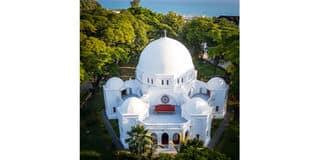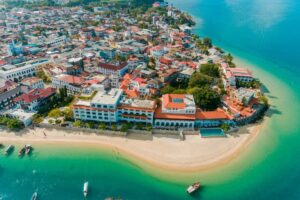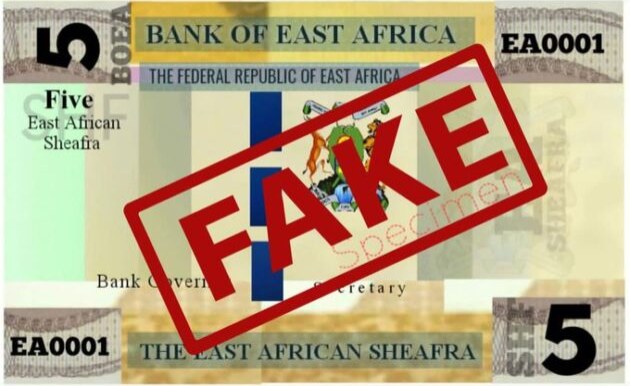Zanzibar has carved a distinctive niche for itself as the only island boasting a captivating blend of privately managed museums and government-supported initiatives led by the Ministry of Tourism and Heritage.
This dynamic collaboration aims to amplify the island’s cultural richness and tourism allure, enticing visitors to delve deeper into its diverse heritage.
Speaking to The Citizen, Maryam Mansab, the director of the museum and antiquities department, highlighted the significance of these museums in showcasing Zanzibar’s history and culture.
Last week, Zanzibar took another stride towards bolstering its cultural tourism with the official inauguration of the Peace Memorial Museum by the Second Vice President, Mr. Hemed Suleiman Abdulla.
This new addition underscores Zanzibar’s commitment to preserving and celebrating its heritage. Alongside the Peace Memorial Museum, Zanzibar has witnessed the opening of other private museums, including the Tanzanite Museum and the Prison Island Museum, each offering a unique perspective on the island’s history and culture.
These additions, along with existing museums like the Princess Salme Museum and the Freddie Mercury Museum, collectively contribute to Zanzibar’s vibrant cultural landscape, attracting tourists and fostering a deeper appreciation of its rich heritage.
The Peace Memorial Museum, locally named Beit el Amaan (House of Peace), was designed by British architect J.H. Sinclair, who also designed the High Court, the British Residency, and several other public buildings around Zanzibar Town.
Peace Memorial Museum
The museum features a beautiful spherical design that reflects Zanzibar’s Arab influence and is reminiscent of the eastern architecture of Istanbul and India.
To the revelers, it is an ideal place to discover the intriguing history and culture of the islands, with exhibits and records covering Zanzibar’s history from the early days of the Omani Sultans and the British colonial period up to independence in 1963.
But, this is not the only one, Zanzibar has in the past witnessed the opening of two more private museums – the Tanzanite Museum and the Prison Island Museum.

Tanzanite Museum
The Tanzanite Museum is dedicated to the mesmerizing blue-violet gemstone unique to Tanzania. It offers an in-depth look at the gemstone’s origins, detailing where and how it is mined.
The museum features various cuts of Tanzanite and includes a replica cave, providing visitors with a unique and immersive experience of the mining process. Visitors can embark on a journey through time as they explore the origins and discovery of Tanzanite in the dedicated museum section.

Tanzanite Museum
They can learn about the fascinating geological formations that led to the creation of this unique gemstone, exclusively found in the foothills of Mount Kilimanjaro.
The museum’s replica cave offers a mesmerizing experience, showcasing the raw beauty of the mining process and providing insight into the challenges and triumphs of those who unearth these precious stones.
The Prison Island Museum is located on the historically significant Prison Island. This museum delves into the island’s past, exploring its role in Zanzibar’s history and its famous giant tortoises.
The addition of these museums enriches the island’s cultural landscape and provides valuable insights into different facets of Zanzibar’s heritage.
These additions have brought the total number of privately managed museums on the island to six, including the renowned Princess Salme Museum and the Freddie Mercury Museum.
The Princess Salme Museum is dedicated to Princess Salme, the daughter of Sultan Said bin Sultan. Born in Mtoni Palace, Princess Salme is a significant historical figure known for her writings and contributions to Zanzibari culture.
The museum showcases memorabilia of Princess Salme, best known as Emily Ruete, who fled from the sultanate to Europe with her husband. Exhibits include some of her writings, clothes, and daily life accessories. The museum offers a deep dive into her life, highlighting her influence and the rich history of the royal family.

Prison Island Giant Turtles
The Freddie Mercury Museum celebrates the life of the legendary rock musician, Freddie Mercury, who was born in Zanzibar. Located in the same building where Mercury was born, the museum offers fans a unique opportunity to connect with the iconic musician’s roots and his journey to becoming one of the most celebrated artists in the world.
Each museum offers a unique glimpse into Zanzibar’s diverse heritage, contributing to a vibrant cultural tourism scene. By showcasing the island’s rich history through these museums, Zanzibar is enhancing its tourism appeal, attracting cultural enthusiasts from around the globe, and encouraging longer stays. This approach not only boosts the local economy but also fosters a deeper understanding and appreciation of Zanzibar’s unique cultural and historical landscape.















